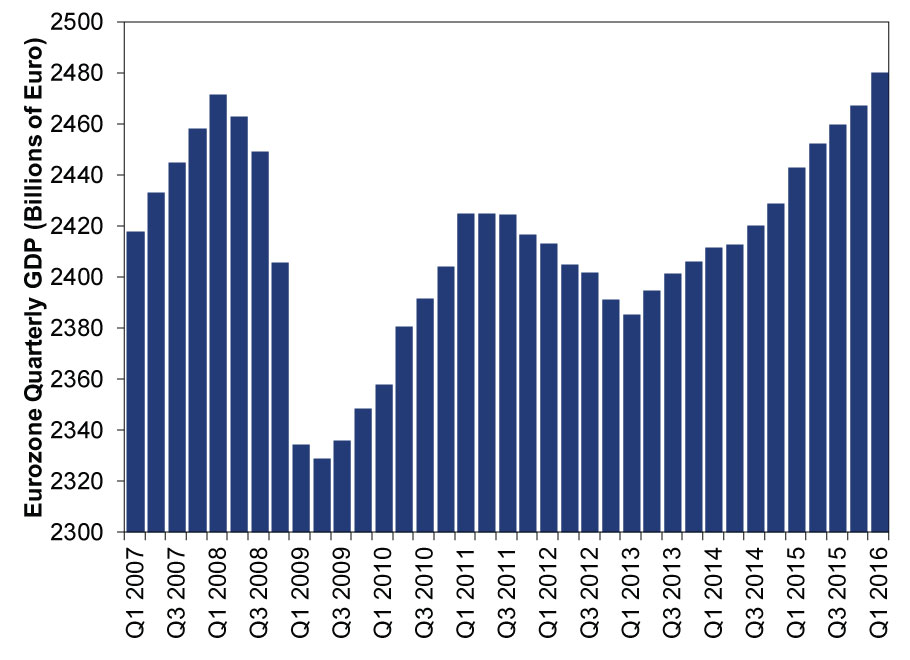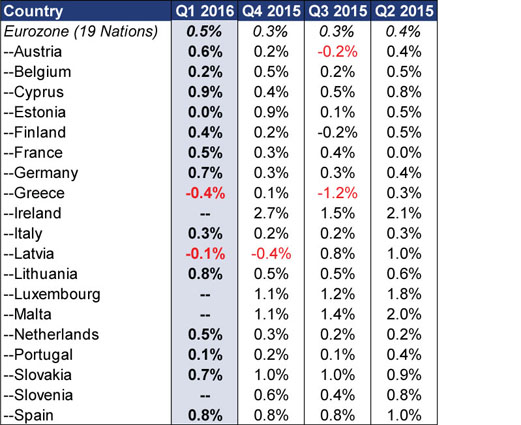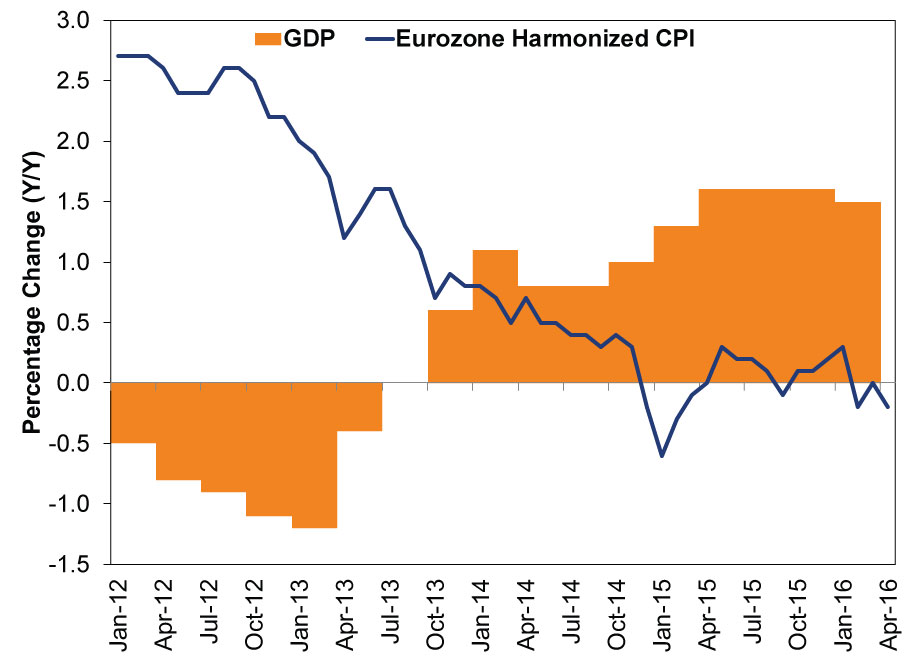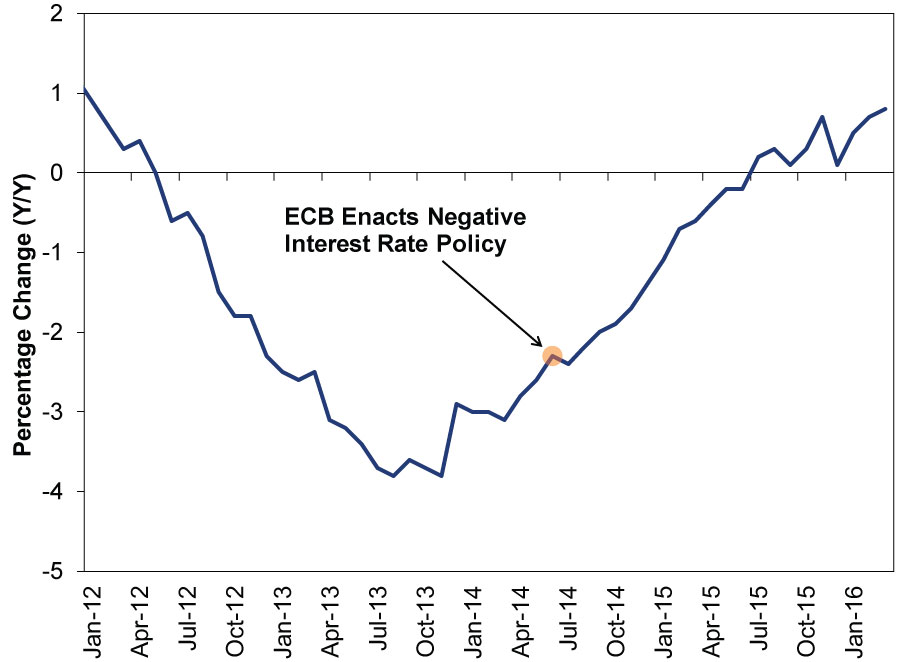Personal Wealth Management / Economics
Quick Hit: A Few Bullet Points to Shoot Down Lingering Eurozone Fears
The eurozone economy is on much more solid footing than is widely appreciated.
Last week, the 19-nation eurozone reported revised Q1 2016 GDP growth, which showed growth ticked down from the preliminary estimate of 0.6% q/q (2.2% annualized) to 0.5% q/q (2.1% annualized). The media reaction, as it is with most things including the words "eurozone" and "economy," was dour. Some bemoaned that only now had the eurozone "scraped" back to pre-crisis GDP levels. Others suggest this uptick is likely fleeting and too reliant on Germany. Others claim the eurozone crisis is just on pause. Still others remain fixated on the fact eurozone CPI was in negative territory in April, fretting a deflationary spiral looms. But a negative take on a growing eurozone is really nothing new. So let's look at the data and assess whether there is really so much to be dour about.
Here are a few quick factoids and charts:
- With 2.1% annualized growth in Q1, the eurozone grew faster than Japan (1.7%), the UK (1.6%) and US (0.5%).[i] Now, the eurozone posting the fastest growth rate of the four major developed economies isn't the trend and we don't expect it to continue, but it is worth noting.. Eurozone GDP, as noted above, has grown in 12 straight quarters and has now eclipsed pre-2008 levels.[ii]
Exhibit 1: Eurozone GDP at an All-Time High

Source: FactSet, as of 5/17/2016.
- Four eurozone countries' growth rates have yet to be reported, but of the 15 that have, only two posted contraction. One is Latvia. The other is Greece.
Exhibit 2: Eurozone Country-by-Country GDP Growth (Quarter-Over-Quarter)

Source: Eurostat, as of 5/17/2016.
- Deflation fears linger, as many fret the eurozone faces slack consumption ahead due to falling prices. Yet since inflation rates like the eurozone's harmonized consumer price index began heading lower, eurozone GDP growth has done the opposite. Exhibit 3 shows this by comparing year-over-year rates of inflation and GDP growth. Why are many pundits so convinced low inflation or deflation threatens the eurozone? The data suggest this fear is false.
Exhibit 3: Eurozone GDP Growth and Harmonized CPI

Source: FactSet, as of 5/17/2016, GDP and harmonized CPI from 1/31/2012- 3/31/2016.
- Related to deflation, many fear negative interest rates in the eurozone will ding growth by hitting banks' profits and forcing them to curtail lending. We agree negative rates aren't great. Yet the ECB enacted a negative interest rate on certain bank reserves in Q2 2014. Growth hasn't faltered, and lending has improved. (Exhibit 4)
Exhibit 4: Eurozone Nonfinancial Corporate Loan Growth

Source: FactSet, as of 5/17/2016, from 1/31/2012- 3/31/2016.
Far be it from us to suggest the eurozone is going to lead growth looking forward and everything is hunky-dory. That is not our point now, nor has it been at any time in recent history. Our point is that the narrative of the eurozone being a crisis waiting to happen is pretty darn far removed from the data at this point.
If you would like to contact the editors responsible for this article, please message MarketMinder directly.
*The content contained in this article represents only the opinions and viewpoints of the Fisher Investments editorial staff.
Get a weekly roundup of our market insights
Sign up for our weekly e-mail newsletter.

You Imagine Your Future. We Help You Get There.
Are you ready to start your journey to a better financial future?

Where Might the Market Go Next?
Confidently tackle the market’s ups and downs with independent research and analysis that tells you where we think stocks are headed—and why.





